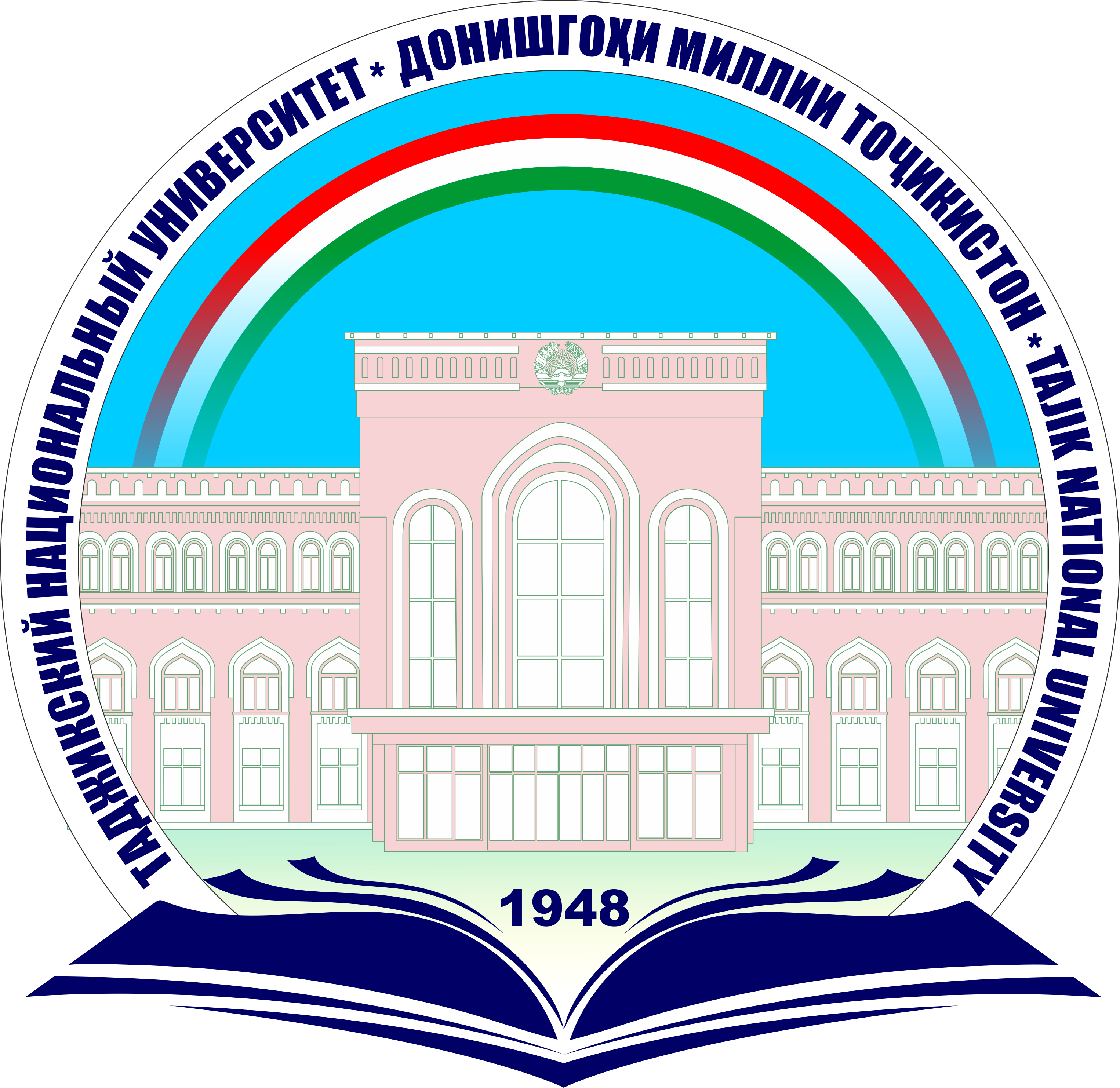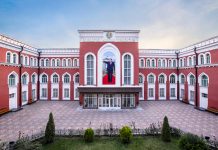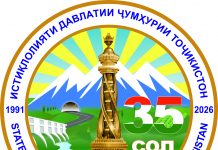Sustainable Development Goals (SDG) Report 2024
Introduction
The Tajik National University (TNU), as the largest and oldest higher education institution in the Republic of Tajikistan, remains committed to supporting the national and global agenda for sustainable development. Guided by the United Nations Sustainable Development Goals (SDGs), the University continues to strengthen its academic, social, environmental, and institutional contributions to sustainable progress.
This annual SDG Report summarizes TNU’s key achievements, policies, and activities throughout 2024 across all relevant goals.
SDG 1 — No Poverty
TNU demonstrates a strong institutional commitment to reducing poverty and supporting vulnerable groups within its academic community. The University annually publishes progress reports reflecting the outcomes of its social support programs.
To mitigate economic hardship, TNU provides both financial and material assistance to academic and administrative personnel, especially during national holidays. Special support is extended to students from low-income families, who receive a monthly stipend of approximately USD 50 and free accommodation in university dormitories. These measures help ensure equitable access to higher education and improve student welfare.
Through these comprehensive actions, the University aligns itself with national policies and actively contributes to achieving the UN Sustainable Development Goal 1.
SDG 2 — Zero Hunger
In support of SDG 2, TNU implements effective strategies to ensure food security and improve nutrition across its campus community. A special institutional fund provides financial assistance to economically disadvantaged students, while teaching and administrative staff receive regular support from university resources.
All campus canteens are supplied with safe, affordable, and high-quality food products. Additionally, the University operates a 5-hectare agricultural base outside the city, which supplies part of the University’s food needs and contributes to sustainable agricultural practices.
These initiatives highlight TNU’s commitment to promoting food security and eliminating hunger among its students and staff.
SDG 3 — Good Health and Well-Being
TNU actively promotes a healthy lifestyle and well-being for all members of its community. The University regularly publishes health-related materials on its website and social media platforms and encourages faculty to contribute articles and analyses on public health issues.
A major achievement in 2024 was the opening of a modern medical clinic on campus, equipped with advanced medical technologies. This facility significantly improves access to healthcare services for students and staff.
The Youth and Sports Department conducts weekly morning exercise sessions for faculty and administrative staff, strengthening a culture of physical activity. Smoking is strictly prohibited on campus.
Notably, several professors aged over 80 continue to work on a contractual basis, demonstrating TNU’s commitment to lifelong well-being and productive aging.
SDG 4 — Quality Education
TNU pays close attention to ensuring high-quality education and actively publishes data related to academic performance and institutional development.
Student attendance rates average 90% and continue to rise.
Nearly 20 academic programs have already undergone international accreditation.
TNU is highly ranked in major international ranking systems, including QS, Times Higher Education, UI GreenMetric, EDURANK, and UNIRANK.
Students from more than 16 countries study at TNU, regardless of religion, race, or language.
Approximately 40% of students are women, with increasing enrollment.
TNU provides full access to electricity, Internet, computers, drinking water, and sanitation facilities, ensuring an inclusive and supportive learning environment.
SDG 5 — Gender Equality
TNU places strong emphasis on promoting gender equality across academic and administrative structures. The University regularly organizes seminars and trainings on gender equity and women’s empowerment.
Key achievements include:
Women constitute approximately 40% of the student body.
Women hold numerous leadership positions, such as Vice-Rector for Educational Affairs, Dean of the Joint Tajik-Belarusian Faculty, Head of the Women’s Affairs Department, and other senior administrative roles.
A dedicated Women’s Club supports talented female students and employees in their academic and professional development.
TNU’s consistent reporting and institutional practices demonstrate its strong commitment to SDG 5.
SDG 6 — Clean Water and Sanitation
Significant progress has been achieved in ensuring universal access to clean water and adequate sanitation:
All university buildings have full access to clean drinking water, disinfected through standardized municipal procedures.
Water-saving practices are strictly enforced, and environmental awareness among students is actively promoted.
Campus cleanliness is maintained at high standards, supported by hundreds of waste bins for organic, paper, and plastic waste separation.
These efforts reflect TNU’s strong commitment to environmental hygiene and sustainable water management.
SDG 7 — Affordable and Clean Energy
Tajik National University ensures full access to sustainable and reliable energy:
The entire campus has 100% access to electricity.
More than 95% of total electricity consumption comes from renewable energy sources.
Annual electricity use is approximately 5.5 million kWh.
The University conducts frequent awareness campaigns on energy efficiency.
Plans are underway to expand solar energy systems, leveraging the country’s 250+ sunny days per year.
These initiatives align closely with the objectives of SDG 7 and demonstrate strong institutional commitment to sustainable energy use.
SDG 8 — Decent Work and Economic Growth
TNU promotes economic growth, inclusive employment, and decent working conditions:
Women constitute approximately 35% of employees.
The average salary at TNU exceeds the national average and is reviewed annually.
The University regularly publishes progress on employment equality and economic development.
Continuous reforms and infrastructure improvements demonstrate strong institutional development.
Through these efforts, TNU upholds the principles of SDG 8.
SDG 9 — Industry, Innovation and Infrastructure
TNU has made significant progress in strengthening its technological and research capacity:
The University campus is one of the largest and best-equipped in Tajikistan.
A new health clinic was opened on campus in 2024.
Classrooms and lecture halls are equipped with electronic boards, computers, and high-speed Internet.
The Innovation Center fosters creativity, research, and entrepreneurial skills.
Two small enterprises operate under the University’s Technological Park, specializing in chemical production and gemstone processing.
These initiatives reinforce TNU’s ability to support innovation, industrial development, and modern infrastructure.
SDG 10 — Reduced Inequalities
TNU actively works to reduce inequalities and ensure inclusive access to education:
Women represent 35% of academic and administrative staff.
Students with disabilities receive full access to campus infrastructure and academic support.
Afghan refugees studying at TNU benefit from reduced tuition fees.
Salaries are equitably structured based on academic titles and responsibilities.
More than ten faculty members with disabilities are employed at the University, demonstrating strong institutional inclusion.
SDG 11 — Sustainable Cities and Communities
TNU maintains a safe, inclusive, and sustainable campus environment:
A comprehensive security system employs over 40 personnel and hundreds of surveillance cameras.
The campus includes open green spaces for recreation and leisure.
The University is accessible via buses, trolleybuses, minibuses, and electric taxis.
Two large dormitories are located on campus, contributing to convenience and accessibility.
Future plans include introducing internal campus transportation systems.
SDG 12 — Responsible Consumption and Production
TNU ensures environmentally responsible practices across all procurement and production activities:
All purchased equipment meets sustainability and energy-efficiency standards.
Plastic use is minimized across campus.
Waste is separated into organic, plastic, and paper categories and processed at municipal facilities.
Sustainable production methods are practiced in the Technological Park’s small enterprises.
These practices reflect TNU’s strong adherence to SDG 12 principles.
SDG 13 — Climate Action
TNU actively addresses climate change through awareness, research, and energy strategies:
Monthly conferences, seminars, and trainings are conducted on climate change.
Over 95% of University electricity is sourced from renewable energy.
In May 2025, TNU participated in the International Conference on Glacier Protection.
A plan is underway to reduce gasoline-powered vehicles entering campus from 80% to 50% within two years.
These efforts highlight TNU’s proactive engagement in combating climate change.
SDG 14 — Life Below Water
Although Tajikistan is a landlocked country, TNU contributes to the protection of freshwater ecosystems:
The University is located on a peninsula bordered by the Varzob and Luchob rivers.
Regular riverbank clean-ups are conducted and published online.
Trout, a rare species in the region, is protected through a strict no-fishing policy in adjacent areas.
TNU emphasizes the global importance of preserving aquatic biodiversity.
SDG 15 — Life on Land
TNU supports the protection and sustainable use of terrestrial ecosystems:
The Faculty of Biology and the Department of Ecology conduct extensive research and publish findings on biodiversity and land protection.
Campus efforts include tree planting, soil preservation, and anti-desertification programs.
Research bases outside the city support fieldwork and environmental studies.
These initiatives demonstrate active engagement in SDG 15.
SDG 16 — Peace, Justice and Strong Institutions
TNU adheres to transparent governance and ethical institutional practices:
Strong internal regulations ensure accountability and good governance.
An effective anti-corruption framework is aligned with national policy.
Vulnerable groups, including people with disabilities and low-income students, receive financial support.
All community members have the right to seek redress in cases of injustice.
TNU promotes peace, justice, and strong institutions across all levels.
SDG 17 — Partnerships for the Goals
TNU engages in extensive collaborations to advance sustainable development:
Strong partnerships exist with institutions in the EU, China, Turkey, Russia, the USA, Korea, Japan, and other nations.
Nearly 50% of academic programs incorporate sustainability topics.
Faculty and civil society representatives actively exchange expertise on SDG-related issues.
TNU continues to expand cooperation with developing countries.
These partnerships significantly enhance the University’s capacity to implement the SDGs.
Conclusion
The Tajik National University remains committed to advancing the Sustainable Development Goals through strong institutional policies, inclusive education, environmental responsibility, and global partnerships.
The achievements of 2024 reaffirm TNU’s role as a leading national institution contributing to the sustainable future of Tajikistan and the world.









